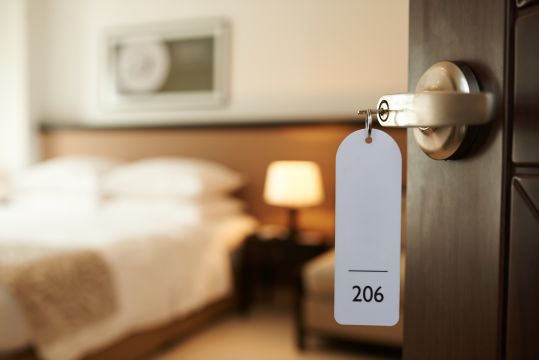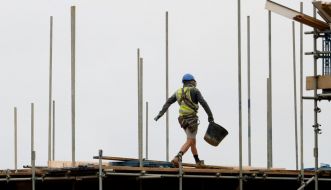New analysis from the Irish Hotels Federation (IHF) has underlined the challenges facing hotels and guesthouses into 2023, with spiralling business costs, reduced forward bookings compared to 2019, and a planned 50 per cent increase in the tourism VAT rate at the end of February 2023.
Despite an uplift in tourism during 2022 following the pandemic, overall hotel room occupancy rates are still significantly down on 2019 for the year to date. For the first 10 months of the year (January to October), average room occupancy levels were 71 per cent nationally and 75 per cent for Dublin.
Over the same period in 2019, however, room occupancy was 80 per cent nationally and 84 per cent for Dublin, "highlighting the extent of lost ground still to be made up".
The economic outlook for the sector is now looking "significantly less certain with pent-up demand quickly unwinding, overseas markets entering economic downturn and consumer confidence reaching decade-lows across key overseas markets".
This is taking its toll on confidence within the sector with the overwhelming majority of hotels and guesthouses saying they are concerned about the impact of global economic uncertainty on their business over the next 12 months, with 38 per cent saying they are concerned and 56 per cent indicating they are very concerned.
With overseas tourism levels forecast to be down 25 per cent this year compared to 2019, forward bookings reported by hotels for next year remain challenging particularly for the UK and parts of Europe:
- ·60 per cent report reduced bookings from Great Britain versus 2019 (5 per cent report an increase, 35 per cent no change).
- 47 per cent report reduced bookings from Northern Ireland (12 per cent report an increase, 41 per cent no change).
- 38 per cent report reduced bookings from the rest of Europe (20 per cent report an increase, 42 per cent no change).
- The US market is a cause for less concern, with 36 per cent reporting reduced bookings largely offset by the 35 per cent reporting an increase (29 per cent no change).
Denyse Campbell, president of the Irish Hotel Federation, said: “We are now heading into very turbulent times economically with growing uncertainty in our overseas markets. This comes at a time when escalating business costs are eroding confidence among hoteliers. Energy costs are a particular worry and are now running at 10-12 per cent of total revenue for the average hotel, up from just 4 per cent of revenue in 2019.
“For an average 70-bedroom hotel this means an increase of €380,000 in annual energy costs. While the Temporary Business Energy Support Scheme introduced in Budget 2023 is welcome, the qualification criteria are far too restrictive for hotels. Hotels are also seeing increases across the cost of food suppliers (up 25 per cent this year), beverages (up 16 per cent), linen and laundry services (up 30 per cent) and insurance costs (up 18 per cent).”
Ms Campbell said that compounding the challenges facing businesses was the decision to increase the Tourism VAT rate to 13.5 per cent at the end of February 2023. Tourism VAT is currently at 9 per cent, so the amount of VAT paid by tourists will increase by 50 per cent - a decision that would make Ireland an outlier amongst countries in Europe who prioritise tourism.







